Covid-19: Recent claims about cremations and vaccines fact-checked
- Published
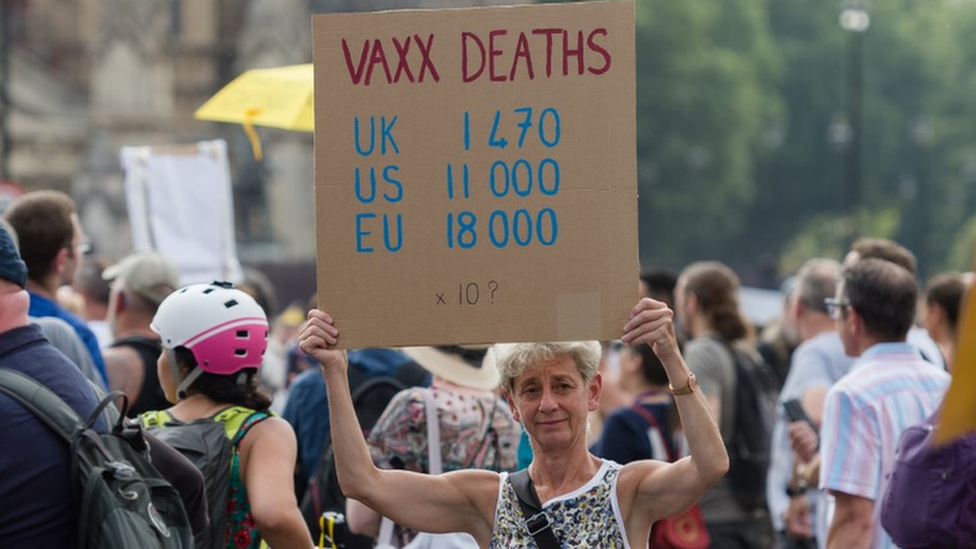
Covid vaccines have been shown to be very safe, but people continue to make unfounded claims to the contrary
Throughout the pandemic, statistics have been used in misleading and false claims about the impact of Covid-19 and the use of vaccines.
Here are four recent claims we've fact-checked.
Claim: Cremations and burial rates are no higher than normal
Verdict: This is not correct. Across the UK, there was a sharp increase in cremations in 2020.
Over recent months, people have been sharing data from Freedom of Information Requests (FOIs) about cremations and burials in different local authorities across the UK.
They claim the figures are no higher than in previous years and question whether there are really any excess Covid deaths.
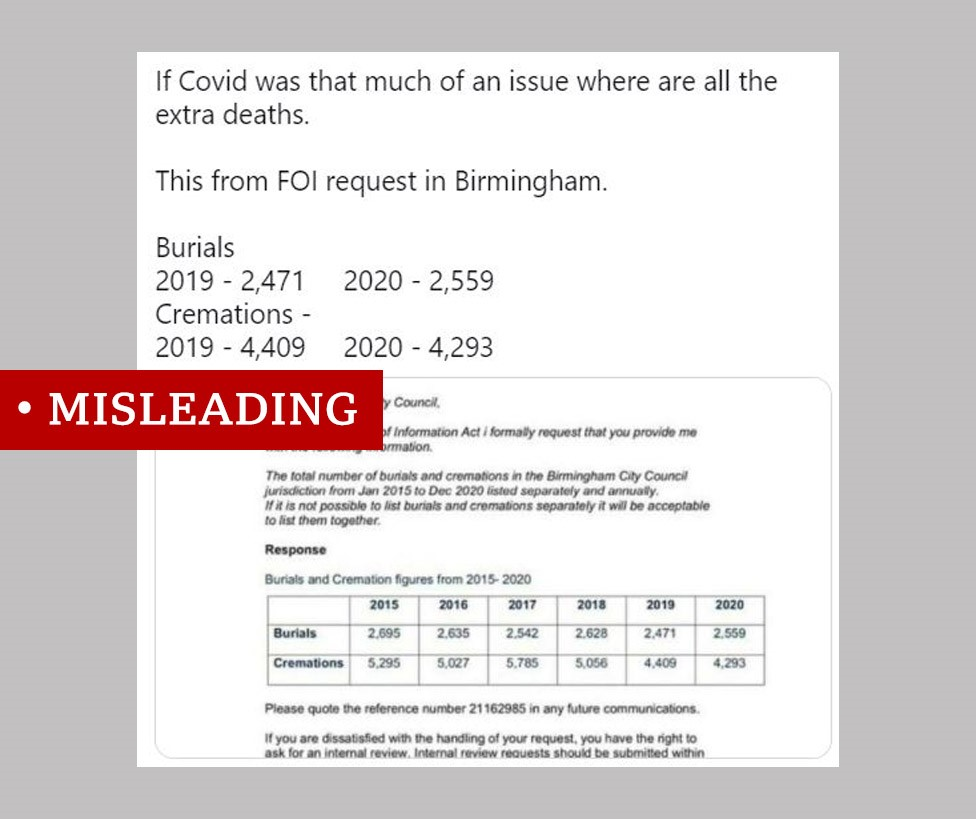
One widely shared example looks at data released by Birmingham City Council.
The council told us the figures initially provided in response to FOIs were wrong because of a glitch in the reporting process.
These suggested the 2020 figure was the lowest in the last six years.
But according to the corrected data, there were 8,316 burials and cremations in 2020, more than the previous year and just about the highest since 2009 (the earliest data available).
We looked at the national picture on cremations, using figures from a charity which collects this data.
The Cremation Society has counted 70,000 more cremations in 2020 than in 2019.
We looked but couldn't find national burial figures.
We also know that there have been more than 115,000 excess deaths - over and above the usual number at the time of year - in the UK since the outbreak began.
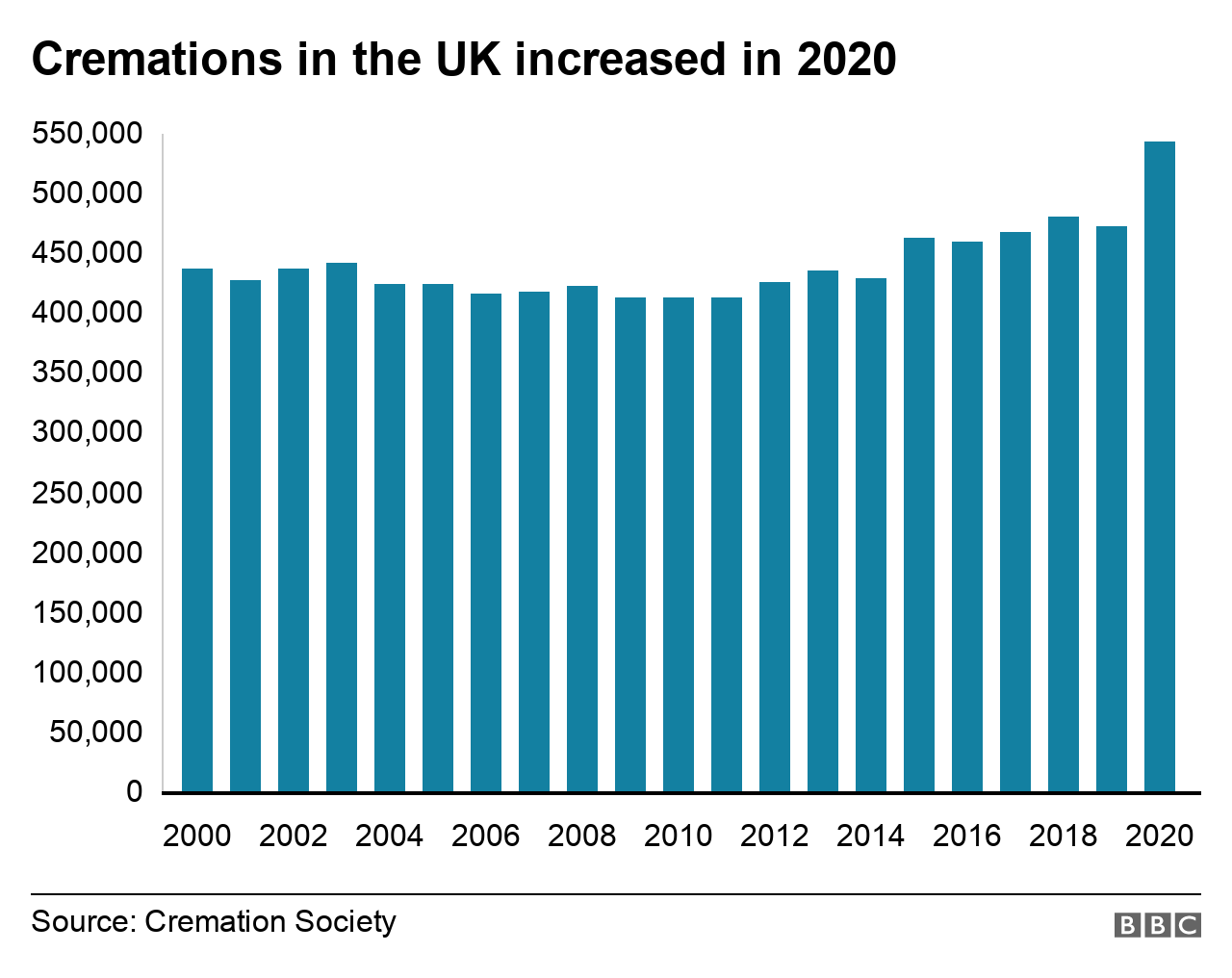
Claim: Hospital admissions show vaccines are not effective
Verdict: This is not correct. Vaccines are highly effective at keeping people out of hospital
On Tuesday, Sir Patrick Vallance, the UK's Chief Scientific Officer, posted a correction about a statistic he had referred to during a press conference the day before.
Allow X content?
This article contains content provided by X. We ask for your permission before anything is loaded, as they may be using cookies and other technologies. You may want to read X’s cookie policy, external and privacy policy, external before accepting. To view this content choose ‘accept and continue’.
"About 60% of hospitalisations from Covid are not from double-vaccinated people, rather 60% of hospitalisations from Covid are currently from unvaccinated people," he said on Twitter.
Before his correction, the figures had been used as proof of "vaccine failure".
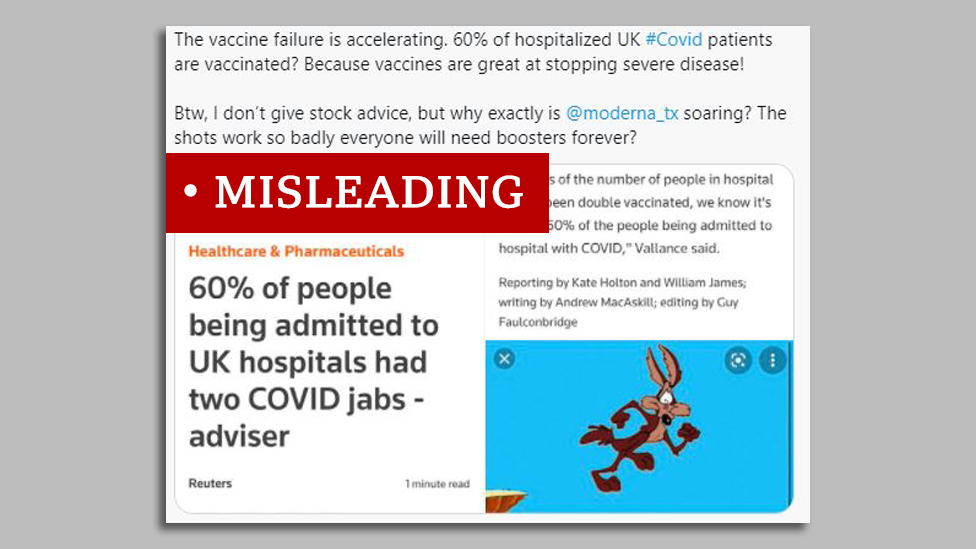
But claims that vaccines aren't effective aren't correct, reports BBC Health Correspondent Nick Triggle, who crunched the numbers.
By looking at the ratio of vaccinated versus unvaccinated people in hospital, it's possible to show that "the vaccines are a little over 90% effective at keeping people out of hospital."
Claim: Covid-19 is not dangerous for non-obese people and those under 65
Verdict: While studies show the chances of dying from Covid-19 are higher in those who are obese and over 65, it is not correct to say the virus poses no risk to people who are not in these categories.
Two recent tweets from US Republican lawmaker Marjorie Taylor Greene resulted in Twitter suspending her account for 12 hours.
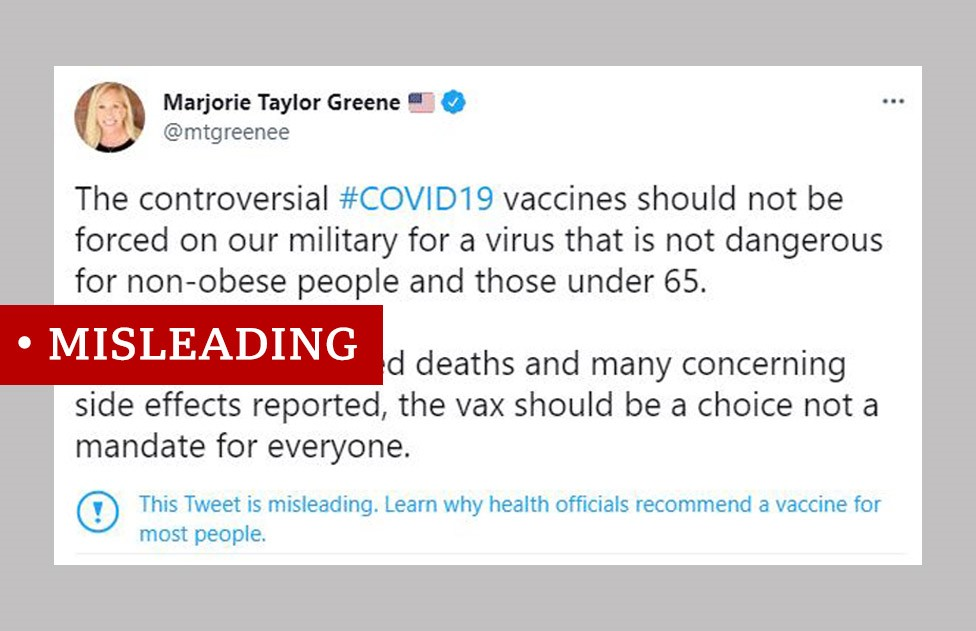
In one, she claimed that Covid-19 was not dangerous for non-obese people and those under 65. She later said in a statement that it was not wrong to highlight obesity as a risk factor for Covid.
In a report released earlier this year by the World Obesity Federation, data on 2.5 million Covid-19 deaths was drawn from more than 160 countries.
2.2 million of these deaths occurred in countries where at least 50% of the population was overweight.
Yet while the report does point towards a strong link between Covid-19 deaths and countries with higher obesity rates, Prof John Wilding of the World Obesity Federation, says that to suggest people who aren't obese aren't at risk is a "complete fallacy."
"Yes, obesity is an important factor, but it's not the only factor. There are lots of people at risk who have all other sorts of conditions who may not be living with obesity."
One report published in the Lancet Diabetes and Endocrinology, which looked at associations between Body Mass Index (BMI) and Covid-19 severity in England, confirmed the association between Covid-19 severity and death in those with obesity.
But it also found that hospital admissions and deaths due to Covid-19 were higher among those who were underweight, compared to those with a healthy BMI.
Then there's the risk of long Covid, which affects people across age groups.
Claim: There are tens of thousands of unreported deaths from the Covid-19 vaccine in the US
Verdict: These reports, which have been widely shared online, are not correct.
The starting point for these erroneous claims is a US government database called VAERS, where anyone in the US can report adverse effects after receiving a vaccine.
TikTok videos claim to show people how to find data relating to deaths from the Covid-19 vaccine on the VAERS website.
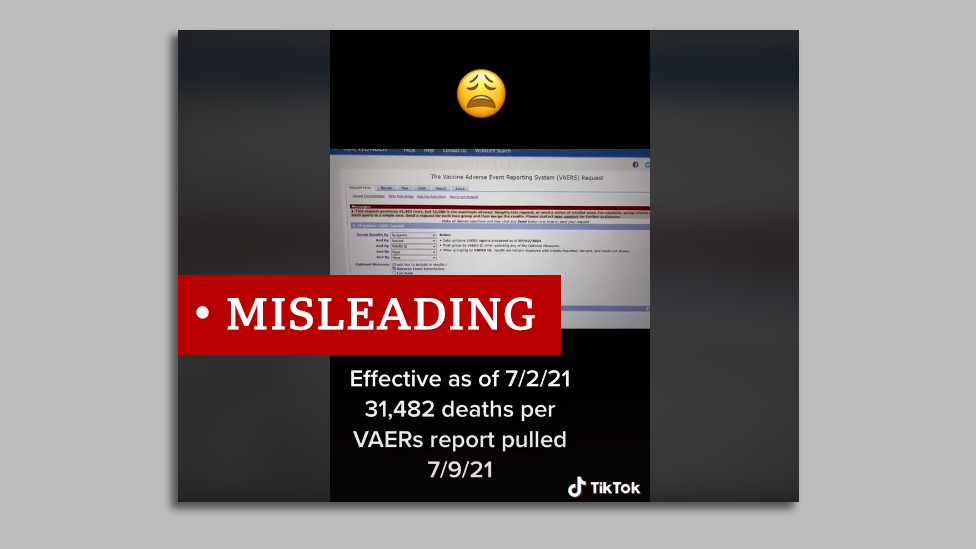
Misleading videos about the vaccine database have urged people not to take a Covid vaccine
The video claimed that this search reported more than 51,000 results and evidence of a "cover-up".
However, we spoke to the US Centers for Disease Control, who told us the methodology used to search for data in this video was wrong.
The correct figure of reported deaths among people who received a Covid-19 vaccine from December 14, 2020 through to July 19, 2021 is 6,207.
Importantly, the VAERS system is not designed to determine whether a vaccine caused a problem.
In other words, correlation does not equal causation - it's wrong to draw any conclusion about how many of these 6,207 deaths may have occurred because of the vaccine.
In an earlier statement, VAERS said its database may include "incomplete, inaccurate, coincidental and unverified information" and "cannot be used to determine if a vaccine caused or contributed to an adverse event or illness".
